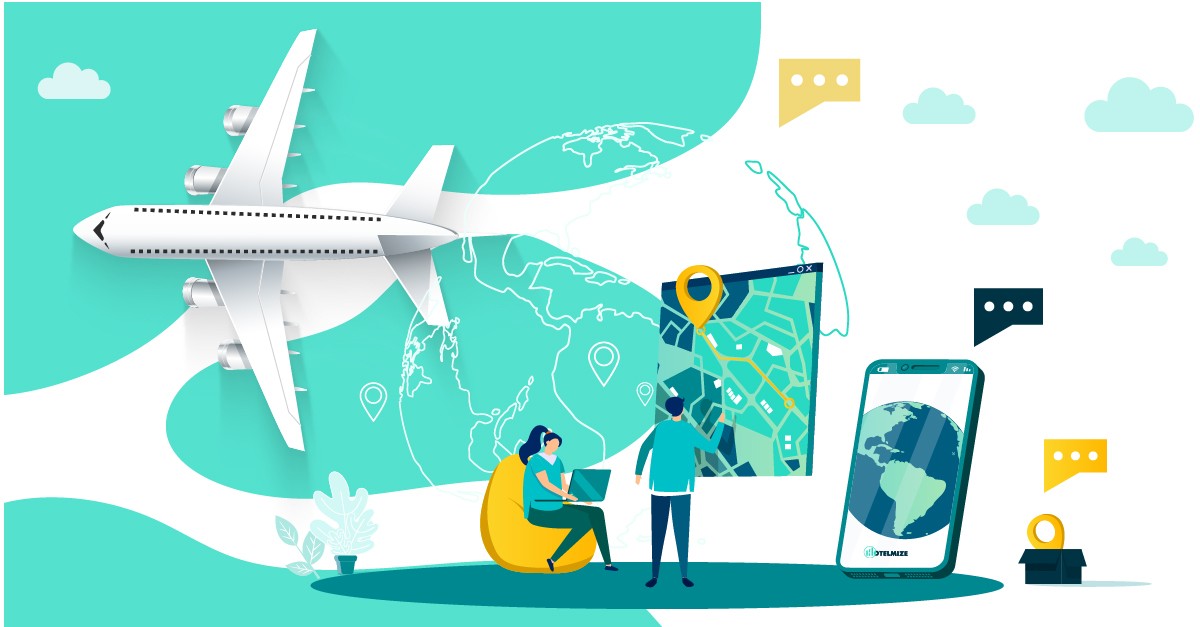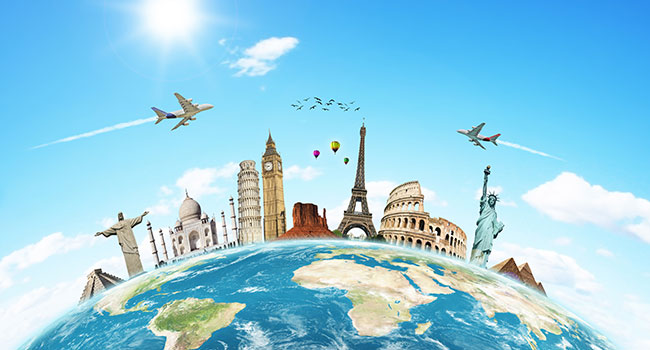In today’s fast-paced world, technology has drastically transformed how we travel. From planning trips to navigating unfamiliar destinations, technology has made the travel experience more convenient, personalized, and efficient. Advances in mobile apps, transportation, and travel management systems have revolutionized the industry, offering travelers a level of convenience and flexibility that was once unimaginable. Here’s how technology is reshaping the way we travel.
1. Seamless Trip Planning with Travel Apps and Websites
Gone are the days when travelers relied on guidebooks or travel agencies for planning. Today, many mobile apps and websites allow travelers to plan, book, and manage their trips in a few clicks. Apps like Google Flights and Skyscanner help users find the best airfare deals, while platforms such as Booking.com and Airbnb offer many accommodation options, from hotels to vacation rentals.
Moreover, platforms like TripAdvisor and Yelp provide real-time reviews and recommendations from fellow travelers, making choosing the best destinations, restaurants, and attractions easier. For those planning more complex itineraries, TripIt, and Kayak Trip Huddle offer tools for organizing flights, hotel bookings, activities, and transportation in one place, ensuring a smooth and stress-free travel experience.
2. Smart Luggage and Packing Assistance
Technology has also improved the way we manage our luggage. Smart luggage has become popular, offering features like GPS tracking, remote locking, and built-in batteries to charge your devices while on the go. This eliminates the anxiety of lost luggage and ensures your belongings are easily traceable if misplaced.
Packing has also been made easier with apps like PackPoint, which helps travelers create customized packing lists based on the weather, destination, and the activities they’ll be doing. These tools ensure that nothing is forgotten and that travelers are fully prepared for their journey.
3. Navigation Made Easy with GPS and Maps
One of the biggest challenges of travel used to be getting lost in unfamiliar locations. Today, GPS technology and mapping apps like Google Maps, Apple Maps, and Waze make navigating new cities easier, finding the quickest routes, and avoiding traffic. These apps provide real-time information on public transportation, road closures, and alternative routes, helping travelers save time and avoid confusion.
For international travelers, offline maps and translation apps, such as Maps. Me and Google Translate are lifesavers. These tools allow users to access maps and translations without an internet connection, making exploring new destinations and communicating with locals, even in remote areas, more manageable.
4. Enhancing Travel Experiences with Virtual Reality (VR) and Augmented Reality (AR)
Virtual and augmented reality are opening new frontiers for travel experiences. VR allows users to explore destinations and hotels from their homes, offering a virtual preview before making travel decisions. For example, platforms like Google Earth VR enable users to explore different parts of the world in a fully immersive 3D experience.
On the other hand, AR has become a powerful tool for enhancing the travel experience while on location. Apps like Google Lens and AR City allow travelers to point their smartphones at landmarks or objects to access additional information, historical facts, and directions. This technology provides interactive, informative, and engaging experiences that enrich a traveler’s understanding of the places they visit.
5. Personalized Travel with Artificial Intelligence (AI)
Artificial intelligence is playing a key role in creating more personalized travel experiences. AI-powered systems help travel companies tailor recommendations to individual preferences, making trip planning even more seamless. For example, platforms like Expedia and Travelocity use AI to suggest customized itineraries based on your travel history and interests.
AI-driven chatbots are also revolutionizing customer service in the travel industry. Many airlines, hotels, and travel agencies now employ chatbots to handle bookings, answer questions, and provide real-time support. These chatbots, such as KLM’s BlueBot or Lufthansa’s Mildred, are available 24/7, allowing travelers to resolve issues quickly and efficiently, often in multiple languages.
6. Ride-hailing and Electric Vehicles
Technology has transformed transportation, making getting from point A to point B faster and more convenient. The rise of ride-hailing services like Uber and Lyft has replaced traditional taxis in many cities, providing more affordable and flexible options. Additionally, these services are available in cities worldwide, making it easier for travelers to navigate foreign destinations.
In parallel, the push for sustainability has led to the rise of electric vehicles (EVs) in the travel industry. Companies like Tesla offer electric car rentals, and cities are becoming more EV-friendly with increased charging infrastructure. These innovations make travel more eco-friendly and offer travelers new, efficient transportation options.
7. Enhancing Safety with Technology
In the post-pandemic era, technology has significantly improved travel safety. Mobile apps such as Traveloka and HealthPass help travelers keep track of travel requirements, including vaccination status, health checks, and COVID-19 protocols. These apps ensure that travelers stay informed and compliant with the latest regulations, providing peace of mind.
Additionally, wearable technology, such as smartwatches, has enabled travelers to stay connected and monitor their health with fitness tracking and emergency alerts. This provides an added layer of security, particularly for solo travelers or those venturing into remote areas.
Conclusion
Technology has transformed the travel industry, making the entire process—from planning and booking to navigating and experiencing new destinations—more convenient, efficient, and personalized. We can expect even more innovative tools and solutions to enhance our travel experiences as technology evolves. For today’s modern traveler, embracing technology is essential for a smooth and memorable journey. Whether through AI, GPS, or virtual reality, technology ensures that the future of travel is more connected and enjoyable than ever before.







Leave a Reply